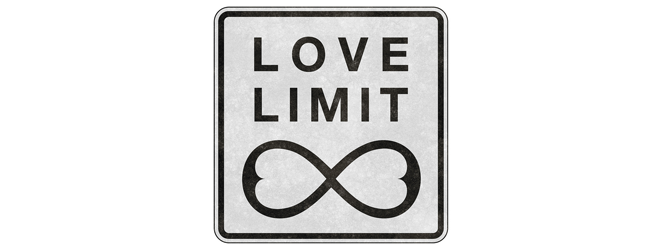
by Tara Joyce | May 13, 2016 | Innerpreneurship, Self/Business Growth

A plant needs space, and a seed, as its container to grow. The seed is a boundary from which the plant grows, as is the space that it takes root and grows in.
To ensure our plants—the ones we choose to nurture and grow—have the space they need to grow free from invasive intruders, we weed our landscape.
Our relationships are no different. They are a landscape that needs our attention.
Weeding is necessary, as is protecting our space from the things we do not need, nor want, within it.
Defining our boundaries in this way is not as a fear-based act of protection, but rather a necessary and abundance-ensuring act that supports the growth of what we care about nurturing.
Everything living needs boundaries to build strong foundations from. What grows from us is no different.
Our boundaries nurture what we care to come to fruition.
photo credit: Enid Martindale

by Tara Joyce | Jun 1, 2015 | Cultural Creativity, Pay What It's Worth Pricing

When I share I practice with Pay What It’s Worth pricing, I often receive one of three perspectives: The Giver loves it and is intrigued by it; the Matcher is curious, has questions, and wants to know more; and the Taker gets angry.
It is the Taker’s perspective, for me, that’s absolutely fascinating and holds a wealth of information… Perhaps more so than the people and perspectives who are open to the idea.
Being taken from hurts. Being a Taker hurts too.
The Taker’s perspective tells so much about the human condition, and how we as individuals process and express our collective feelings of separation and of lack. The Taker is extremely victimized by their feelings of lack, and they’re not yet capable of constructively processing them. The Taker lives within each of us — we experience it in the places in our life where we have, in fear, not yet owned our responsibility. It’s more than we’re capable of handling in the moment.
In the context of money and pricing, the Taker thinks and feels it’s stupid to not set prices. Their perspective is: humans are inherently not fair, nor generous. The Taker challenges the validity of, the sustainability of, and the authenticity of not setting prices, and they challenge my own authenticity as a seller, for choosing it.
The Taker does not believe I could be truly be happy with what they give, nor will I feel it’s fair. This perspective perfectly reflects their own story about relationships, and more specifically about money and finances, and it justifies their own actions in relationship. It’s a self-fulfilling prophecy, really. They ‘know’ they won’t be fair, and so they question how I could possibly be happy with what they give. In not being capable of fairness or balance in their own relationships, they project this lack onto me, and everyone else.
Engaging in emotional jeopardy.
The Taker, rather than look at their own feelings, thoughts, and actions, instead looks elsewhere, at something external; such as at me and my offerings. Rather than observe their own intentions and actions in relationship, they look for the inevitable holes in mine. When allowed, they use this vulnerable space to show their Ego that others take in the same way they do. When given the freedom, the Taker uses this space to justify their behaviour and to feel victimized by the relationship — either by assuming they must take more than is fair in order to survive, and/or by feeling that they haven’t received enough.
The Taker is not yet capable of investing in fair exchanges and balanced relationships. They lack boundaries and a sense of responsibility. And when allowed by others, like me, they will unconsciously use their exchanges and relationships as a mirror to confirm what they already ‘know’.
The Taker’s immense value.
In recognizing the importance of the Taker’s perspective, I’m being emotionally self-protective. In being self-protective, I’m enabling myself to remain emotionally self-aware and self-nurturing without being hurt or taken advantage of by others. In caring for myself in this way, I’m simultaneously supporting the Taker in re-writing their story. For I’m not engaging in the drama of their Taking, perpetuating it and co-creating it. In remaining attentive to the person, and their drive to Take, and interacting with them in realistic ways, I’m not putting myself in emotional jeopardy. I’m co-creating healthy relationships, and I’m supporting the Taker in their healing and recovery.
Creating the balance you need.
The Taker has the powerful ability to show you where your boundaries need to be strengthened and transformed, to ensure you are truly creating relationships of mutual fulfillment. Interacting with your Taker will guide you in creating the balance your relationships need.
photo credit: Heleri

by Tara Joyce | May 8, 2015 | Cultural Creativity

Opposites hold an essential boundary for the other. This boundary is a space they both hold in common. When you’re standing on it, you can see the spectrum of truth spanning both sides of the opposition.
Bridging this shared boundary is a delicate dance that requires being able to access both sides, while holding the tension of their opposition.
Your pain and your potential are two sides of the same coin. Without an awareness of both, you take the wealth out of your experience. To truly know one, you must know both; and to the extent you know one, you know the other.
Imbalance is a result of heavily favouring one side of an opposition. It is a result of seeing one aspect of the coin, such as your potential, as more valuable and attractive than the other.
In working to know and value both sides, neither side needs to be lacking for both is acceptable. In this place of acceptance, you masterfully bridge the essential boundary these opposites share.
photo credit: Pablo Fernández
Thank you, Lee Shane, for the inspiration and support in expressing this concept.

by Tara Joyce | Mar 27, 2015 | Cultural Creativity, Pay What It's Worth Pricing

Can you really know your value?
Is it a fixed thing?
Is it of value to quantify your worth?
These questions intrigue my mind.
To explore this curiosity, I developed a (business) practice of not setting prices. In this system of pricing, I place no limit on the value of my offerings, and instead I trust and guide my customers to fairly determine the value of what they’re receiving, and the price they pay for it.
In not setting a price on the value of my service, I’ve come to understand something powerful: the only real limits to your value are the ones you place on yourself.
Your value doesn’t have a limit, unless you choose for it to. It’s not a fixed thing; it changes, rises and falls, relationship-to-relationship, exchange-to-exchange, and it grows as you learn to value yourself more responsibly.
The heart of it is: your worth, and the value you place on it, sets your intentions for what you receive. You have the power to choose how limitless you truly are.
There is no need to fix or limit your value; rather there is a necessity for you to grow into your awareness of it and your boundaries around it. In my experience as you do you’ll find your world, and the value of it, grows graciously with you.
A version of this article was originally published on Fine Lines.
photo credit: Nicolas Raymond

by Tara Joyce | Aug 20, 2012 | My Journey | What's On My Mind

A list of things that I am learning to not feel wrong about… as they are my right, as an individual:
- My right to chose when and how I interact with people.
- My right to chose what motivates me.
- My right to care… or not.
- My right to know why it’s good for me.
- My right to have boundaries and honour them.
Are there things that feel wrong to you, even though you know you have a right to them?










